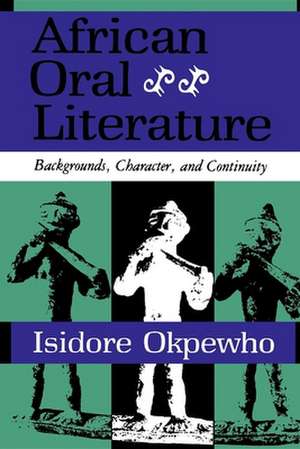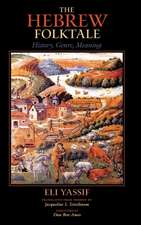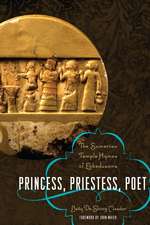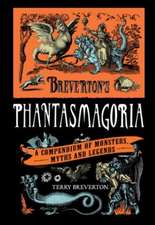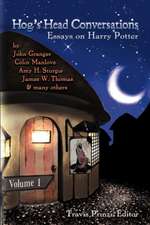African Oral Literature – Backgrounds, Character, and Continuity
Autor Isidore Okpewhoen Limba Engleză Paperback – 21 sep 1992
Preț: 231.26 lei
Nou
Puncte Express: 347
Preț estimativ în valută:
44.27€ • 48.10$ • 37.21£
44.27€ • 48.10$ • 37.21£
Carte tipărită la comandă
Livrare economică 21 aprilie-05 mai
Preluare comenzi: 021 569.72.76
Specificații
ISBN-13: 9780253207104
ISBN-10: 025320710X
Pagini: 408
Dimensiuni: 187 x 235 x 23 mm
Greutate: 0.58 kg
Editura: MH – Indiana University Press
ISBN-10: 025320710X
Pagini: 408
Dimensiuni: 187 x 235 x 23 mm
Greutate: 0.58 kg
Editura: MH – Indiana University Press
Cuprins
Preface
Part One: Backgrounds and Resources
1. The Study of African Oral Literature
What Is "Oral Literature"?
An Interest in Culture
An Interest in Society
An Interest in Literature
Benefits of the New Trends
2. The Oral Artist
Training and Preparation
Artists and Patrons
The Artist as Maker
The Personality of the Artist
The Artis's Place in Society
3. The Oral Performance
Varieties of Performance
Paralinguistic Resources
Performer and Accompanist
Performer and Audience
Performer and Recorder
Composition and Performance
4. Stylistic Qualities
Repetition
Parallelism
Piling and Association
Tonality
Ideophones
Digression
Imagery
Allusion
Symbolism
5. Social Relevance
Entertainment and Relaxation
Asserting Interests and Outlooks
Teaching Ideals and Conduct
Recording Life
Part Two: Types and Themes
6. Songs and Chants
Problems of Classification
The Nature of Songs and Chants
Major Themes
7. Oral Narratives
Schools of Thought
Categories of the Oral Narrative
Storytelling in Africa
8. Witticisms
Proverbs
Riddles
Puns and Tongue-Twisters
9. Musical and Dramatic Forms
The Poetry of Tone Instruments
Ritual Drama
Popular Drama
Part Three: The Survival of Oral Literature
10. Oral Literature and Modern African Literature
Translation
Adaption
Exploitation
11. Preserving Oral Literature: Fieldwork and After
Attitudes
Preparations
Meeting the Artist
Recording the Artist
Transcription and Translation
Storage
What Do They Get for Their Pains?
12. Suggested Further Work
Fieldwork and Documentation
The Urban Scene
Biocritical Studies
Other Specialized Investigations
Notes
Bibliography
Index
Part One: Backgrounds and Resources
1. The Study of African Oral Literature
What Is "Oral Literature"?
An Interest in Culture
An Interest in Society
An Interest in Literature
Benefits of the New Trends
2. The Oral Artist
Training and Preparation
Artists and Patrons
The Artist as Maker
The Personality of the Artist
The Artis's Place in Society
3. The Oral Performance
Varieties of Performance
Paralinguistic Resources
Performer and Accompanist
Performer and Audience
Performer and Recorder
Composition and Performance
4. Stylistic Qualities
Repetition
Parallelism
Piling and Association
Tonality
Ideophones
Digression
Imagery
Allusion
Symbolism
5. Social Relevance
Entertainment and Relaxation
Asserting Interests and Outlooks
Teaching Ideals and Conduct
Recording Life
Part Two: Types and Themes
6. Songs and Chants
Problems of Classification
The Nature of Songs and Chants
Major Themes
7. Oral Narratives
Schools of Thought
Categories of the Oral Narrative
Storytelling in Africa
8. Witticisms
Proverbs
Riddles
Puns and Tongue-Twisters
9. Musical and Dramatic Forms
The Poetry of Tone Instruments
Ritual Drama
Popular Drama
Part Three: The Survival of Oral Literature
10. Oral Literature and Modern African Literature
Translation
Adaption
Exploitation
11. Preserving Oral Literature: Fieldwork and After
Attitudes
Preparations
Meeting the Artist
Recording the Artist
Transcription and Translation
Storage
What Do They Get for Their Pains?
12. Suggested Further Work
Fieldwork and Documentation
The Urban Scene
Biocritical Studies
Other Specialized Investigations
Notes
Bibliography
Index
Notă biografică
ISIDORE OKPEWHO, Chair of Afro-American Studies at the State University of New York at Binghamton, is author of The Epic in Africa and Myth in Africa and editor of The Heritage of African Poetry and The Oral Performance in Africa. He has also published two novels, The Victims and The Last Duty. He was for many years Professor of English at the University of Ibadan.
